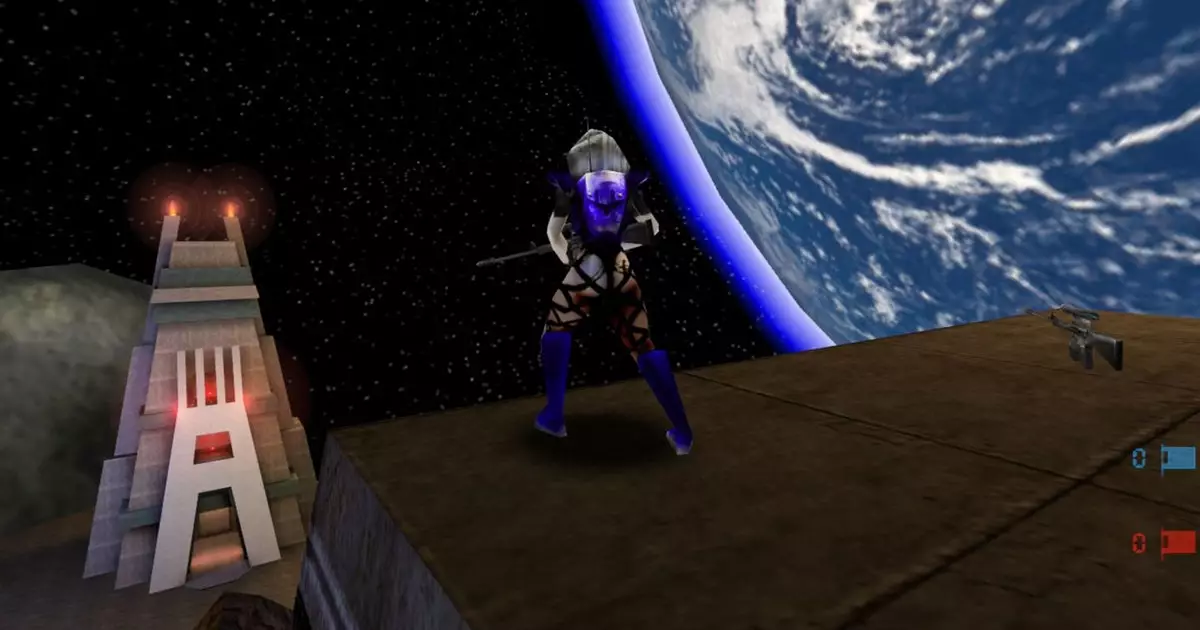Epic Games has made a noteworthy decision that resonates with both long-time fans of classic first-person shooters and newcomers alike: the release of their 1998 title, *Unreal*, on the Internet Archive. This significant move not only provides gamers access to a seminal title in the first-person shooter genre but also ensures that it is preserved for future generations. Moreover, Epic has extended this generosity to *Unreal Tournament*, a game revered for its fast-paced multiplayer action and iconic maps, including the legendary *Facing Worlds*.
This permission highlights a notable shift in how game developers view legacy titles. The fan community, particularly the group Old Unreal, has played a pivotal role in facilitating access by creating user-friendly installers. These custom tools simplify the download and installation process, allowing players to relive the nostalgia of these classic games without the technical hurdles often associated with older software.
As Gaming becomes increasingly focused on rapid development and new releases, the maintenance and accessibility of classic titles have often been neglected. Internet Archive has become a vital repository for such games, but as noted, its interface can be cumbersome. The intervention of enthusiasts is critical; without the effort of dedicated individuals and groups, many classic titles might have remained out of reach for modern gamers.
Old Unreal’s initiative to streamline the installation processes for *Unreal* and *Unreal Tournament* represents a larger trend in gaming: the call for preservation. Just as museums safeguard art and history, gamers feel a responsibility to protect and share the digital artifacts of their past. As custodians of these iconic works, the Old Unreal team exemplifies how collective passion can revive interest in old classics.
Epic Games’ decision also sheds light on the complex relationship between game developers and digital distribution platforms. A couple of years ago, Epic made the contentious choice to delist *Unreal* from Steam, likely a strategic move to bolster its own store amid fierce competition. While some gamers were understandably frustrated, the subsequent decision to make these beloved titles freely available can be perceived as a form of redemption.
This act of releasing *Unreal* and *Unreal Tournament* for free reflects a growing trend across the industry wherein developers are acknowledging the importance of their historical titles. With platforms like GOG committing to making classic games relevant again, there seems to be a growing consensus on the value of preservation amid an industry often criticized for its fleeting focus on the next big hit.
The revival of *Unreal* is more than just a nod to nostalgia; it offers an opportunity for reflection on the evolution of gaming since the late ’90s. At the time of its release, the development process was grueling, with employees reportedly working 70-80 hour weeks. Yet, it’s the culminated visions and risks taken by developers that released extraordinary worlds for players to explore. As veterans of the industry share their experiences, we gain further insight into the challenges and triumphs of game creation.
Epic Games’ decision to host *Unreal* and *Unreal Tournament* on the Internet Archive is a significant step towards acknowledging and preserving the legacy of classic gaming. As technology continues to evolve, the availability of these titles not only sustains their relevance but also enriches our understanding of video game history. Through community-driven initiatives, we can ensure that these seminal works remain accessible, allowing new generations of gamers to experience the thrill of classic shooters and appreciate their lasting impact on the gaming landscape.

